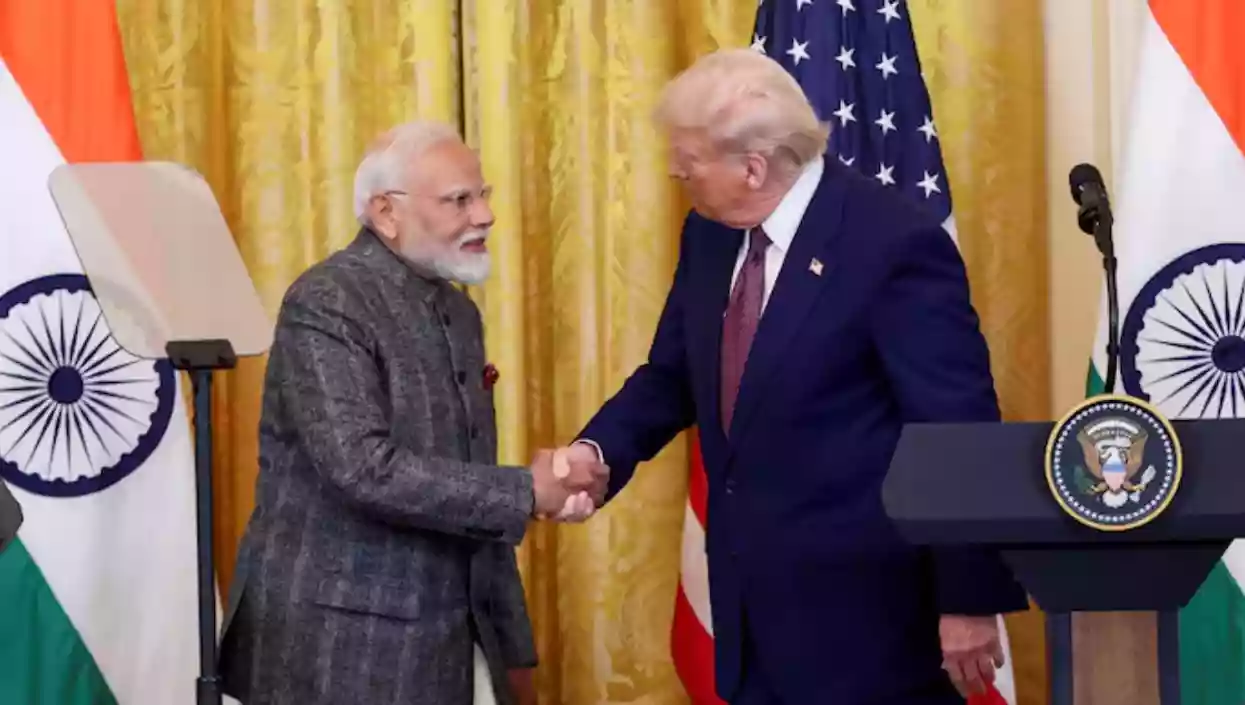.gif)
.gif)

India is considering reducing tariffs on over half of US imports worth $23 billion as part of an ongoing trade negotiation aimed at countering the impact of US President Donald Trump's global reciprocal tariffs. According to sources cited by Reuters, this move is designed to safeguard Indian exports, which are set to be hit by the new US tariff policy taking effect on April 2.
An internal government analysis has revealed that 87% of India's $66 billion annual exports to the US could be affected by these tariffs. To mitigate the potential economic fallout, India is open to reducing or eliminating tariffs on 55% of American imports currently taxed between 5% and 30%. However, the government has ruled out tariff reductions on key agricultural products such as meat, maize, wheat, and dairy.
A US trade delegation led by Brendan Lynch, Assistant US Trade Representative for South and Central Asia, is scheduled to visit India for discussions. The Indian government is keen to finalize a deal before the US tariffs come into force. While India’s stance is flexible on tariff cuts for items like almonds, pistachios, quinoa, and oatmeal, it remains firm on maintaining higher tariffs on automobiles, which currently exceed 100%. Any reduction in auto tariffs, if agreed upon, would be implemented gradually rather than as an immediate cut.
The trade tensions between the two countries stem from the stark contrast in tariff structures. World Trade Organization data indicates that while the average US trade-weighted tariff is 2.2%, India's stands at 12%. The US currently faces a $45.6 billion trade deficit with India, making tariff adjustments a key point of discussion. During Prime Minister Narendra Modi’s visit to the US in February, both nations agreed to resume early trade negotiations to resolve long-standing disputes. However, India’s willingness to slash tariffs hinges on whether Washington reciprocates by easing its newly imposed duties.
The Indian government is particularly concerned about the potential impact of US reciprocal tariffs on key export sectors such as pharmaceuticals, automobiles, electrical equipment, and machinery. Government sources suggest that new US tariffs could raise levies on Indian exports of pearls, mineral fuels, and industrial machinery by 6% to 10%, affecting nearly half of India's total exports to the US. There is also concern that US companies may shift their supply chains to alternative markets such as Indonesia, Israel, and Vietnam if Indian exports become uncompetitive due to higher tariffs.
India’s Trade Secretary, Sunil Barthwal, recently addressed a parliamentary committee, stating that while India values strong trade ties with the US, it will not compromise on its national interest. Meanwhile, US Commerce Secretary Howard Lutnick has urged India to consider broader tariff reductions, especially in light of recent Indian concessions on high-end motorcycles and bourbon whisky. The negotiations are ongoing, and the final terms of any agreement will likely depend on mutual concessions from both sides.